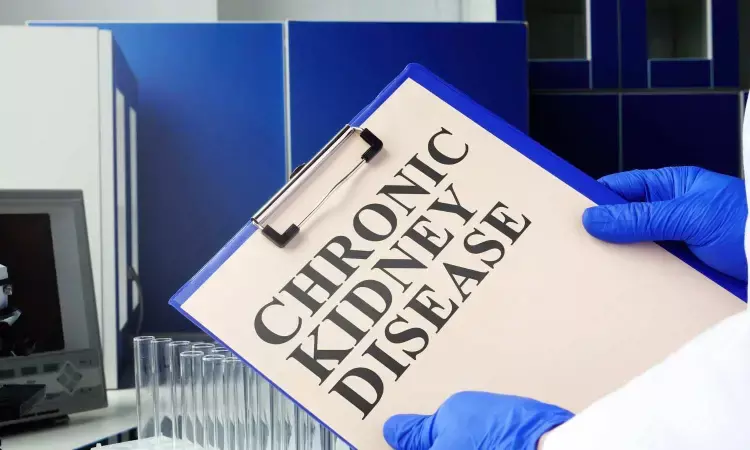- Home
- Medical news & Guidelines
- Anesthesiology
- Cardiology and CTVS
- Critical Care
- Dentistry
- Dermatology
- Diabetes and Endocrinology
- ENT
- Gastroenterology
- Medicine
- Nephrology
- Neurology
- Obstretics-Gynaecology
- Oncology
- Ophthalmology
- Orthopaedics
- Pediatrics-Neonatology
- Psychiatry
- Pulmonology
- Radiology
- Surgery
- Urology
- Laboratory Medicine
- Diet
- Nursing
- Paramedical
- Physiotherapy
- Health news
- Fact Check
- Bone Health Fact Check
- Brain Health Fact Check
- Cancer Related Fact Check
- Child Care Fact Check
- Dental and oral health fact check
- Diabetes and metabolic health fact check
- Diet and Nutrition Fact Check
- Eye and ENT Care Fact Check
- Fitness fact check
- Gut health fact check
- Heart health fact check
- Kidney health fact check
- Medical education fact check
- Men's health fact check
- Respiratory fact check
- Skin and hair care fact check
- Vaccine and Immunization fact check
- Women's health fact check
- AYUSH
- State News
- Andaman and Nicobar Islands
- Andhra Pradesh
- Arunachal Pradesh
- Assam
- Bihar
- Chandigarh
- Chattisgarh
- Dadra and Nagar Haveli
- Daman and Diu
- Delhi
- Goa
- Gujarat
- Haryana
- Himachal Pradesh
- Jammu & Kashmir
- Jharkhand
- Karnataka
- Kerala
- Ladakh
- Lakshadweep
- Madhya Pradesh
- Maharashtra
- Manipur
- Meghalaya
- Mizoram
- Nagaland
- Odisha
- Puducherry
- Punjab
- Rajasthan
- Sikkim
- Tamil Nadu
- Telangana
- Tripura
- Uttar Pradesh
- Uttrakhand
- West Bengal
- Medical Education
- Industry
Renal biopsy improves renal functional prognosis of CKD

A recent study by Tianyi Zhang and peers suggest that renal biopsy improves the renal functional prognosis of chronic kidney disease (CKD) patients with impaired renal function. Also, the result implies that 24-hour urine protein excretion more than 1 g/d is a predictor of poor renal outcomes in CKD patients who did not receive renal biopsy. The findings of the study were published in BMC Nephrology.
This study aimed to investigate whether renal biopsy improves the renal functional prognosis of CKD patients with impaired renal function. The study retrospectively enrolled 300 CKD patients, 150 of whom received percutaneous renal biopsy while the others did not.
The results showed that patients who received renal biopsy had a significantly higher renal survival probability than those who did not (P < 0.001).
The eGFR of the biopsy group increased from 52.2 ± 14.4 to 67.4 ± 37.8 ml/min/1.73 m² during the follow-up period, whereas it decreased from 55.3 ± 17.1 to 29.8 ± 19.1 ml/min/1.73 m² in the non-biopsy group.
Moreover, Cox regression analysis revealed that 24-hour urine protein excretion (24 h UPE) more than 1 g/d was an independent predictor for poor renal outcomes in the non-biopsy group but not in the renal biopsy group (HR = 1.719, P = 0.040).
The study has implications for clinical practice as it suggests that renal biopsy may be necessary for CKD patients with impaired renal function to make pathological diagnoses and guide clinical management. However, the study has some limitations, such as its retrospective design and the possibility of selection bias. Future prospective studies with larger sample sizes and longer follow-up periods are needed to confirm these findings.
Source:
Zhang, T., Yang, X., Zhang, M., Zhou, W., Jin, Y., Zhou, H., Zhou, Y., Wang, Q., & Mou, S. (2023). Effects of receiving renal biopsy on the prognosis of chronic kidney disease patients with impaired renal function. In BMC Nephrology (Vol. 24, Issue 1). Springer Science and Business Media LLC. https://doi.org/10.1186/s12882-023-03097-2
Neuroscience Masters graduate
Jacinthlyn Sylvia, a Neuroscience Master's graduate from Chennai has worked extensively in deciphering the neurobiology of cognition and motor control in aging. She also has spread-out exposure to Neurosurgery from her Bachelor’s. She is currently involved in active Neuro-Oncology research. She is an upcoming neuroscientist with a fiery passion for writing. Her news cover at Medical Dialogues feature recent discoveries and updates from the healthcare and biomedical research fields. She can be reached at editorial@medicaldialogues.in
Dr Kamal Kant Kohli-MBBS, DTCD- a chest specialist with more than 30 years of practice and a flair for writing clinical articles, Dr Kamal Kant Kohli joined Medical Dialogues as a Chief Editor of Medical News. Besides writing articles, as an editor, he proofreads and verifies all the medical content published on Medical Dialogues including those coming from journals, studies,medical conferences,guidelines etc. Email: drkohli@medicaldialogues.in. Contact no. 011-43720751


